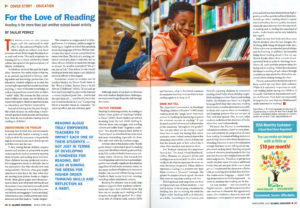
Many countries in the Muslim world face demands to reform the curriculum in K-12 and in higher education settings. IIIT’s Advancing Education in Muslim Societies (AEMS) initiative contributes to this effort to equip students with 21st century skills while ensuring that the universal Islamic values are part of the curriculum. IIIT aims to inform decisions on the curriculum in K-12 and higher education using a human development approach to prepare students for meaningful living grounded in rich Islamic and universal teachings. This is necessary as the curriculum in most Muslim countries considers religious education an important part of the education system. Furthermore, many Muslim societies offer education through Qur’anic Schools in addition to formal education offered by state-funded institutions. For some students who cannot access the state-funded schools in the more urban areas, Quranic schools serve as their only form of education (Abu-Nimer & Nasser, 2017). It is important for any curriculum reform efforts in these societies to take this into account, and make sure that all areas of the curriculum are addressed in different types of educational settings. The curriculum in schools and higher education can integrate Islamic and universal values and support the agenda of the 21st century skills such as problem solving and meaning making.



